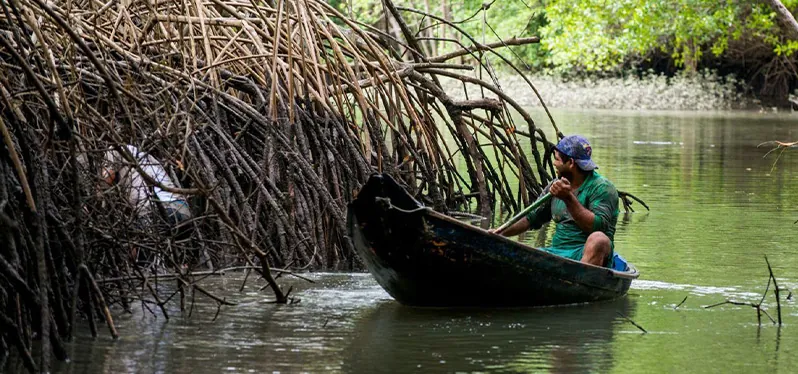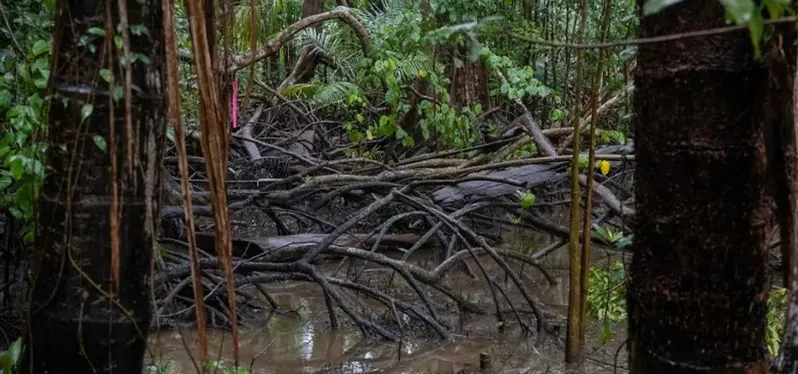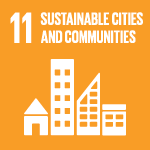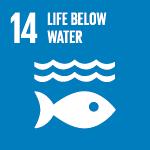Posted in: 07/27/2022
Although fundamental, mangroves are ceasing to exist for lack of stricter protection measures and effective compliance with laws , in addition to several other environmental factors that we will see below.
The consequences for the environment and for all of us, who are part of it, can be much greater than what we usually imagine when we think of mangroves – one of the ecosystems that used to be most underestimated.
In view of the alarming scenario of disappearance, several initiatives for the preservation of mangroves have gained space, driven mainly by the United Nations (UN) Decade for Ecosystem Restoration . With the Decade, the UN invested in several mangrove restoration programs around the world, which have drawn attention to our relationship with the ecosystem and its importance.
In this way, the last few years have been marked by a much greater number of researches dedicated to understanding and exposing important data so that governments and organizations are more committed to the preservation of their mangroves. The objective is to stop , as soon as possible, the degradation of mangroves and develop increasingly efficient processes for the recovery and preservation of these ecosystems.
Mangroves are allies in the battle against carbon dioxide (CO2) present in the atmosphere, one of the main causes of global warming and climate change . According to data released by the UN Environment Program (UNEP), mangroves absorb up to five times more CO2 than other ecosystems and forests. That is, the disappearance of this ecosystem is a factor that impacts the environment in general.
But the communities that depend directly on the mangroves, such as the riverside populations for which it is a source of food and income , are the ones that suffer the most from the loss: the accelerated disappearance of the mangroves may also represent their disappearance. According to the United Nations Educational, Scientific and Cultural Organization (UNESCO), 120 million people in the world depend on this ecosystem for their livelihoods.

Brazil , for example, concentrates 12% of the world’s mangroves . According to data from the SOS Mata Atlântica Foundation and the National Institute for Space Research (INPE), there are mangroves in 338 Brazilian municipalities , covering an area where about 44 million people live . It is estimated that the ecosystem will generate around R$20 billion in economic benefits in the country.
However, recently, in one of the moments when national mangroves were at great risk, the National Council for the Environment (Conama), in 2020, overturned resolutions related to environmental preservation that directly affected the ecosystem. Resolution nº 303/2002 , the main one, regulates the protection of restingas, mangroves and other permanent protection areas (APPs), restricting deforestation and occupation in these areas.
In 2021, the Federal Superior Court (STF) declared unconstitutional the norm that revoked the protection of dunes, sandbanks and mangroves, undoing the decision that would have been considered a setback in environmental protection .
Although the repeal took place, experts point out that the protection of the coastal ecosystem is still at constant risk, considering that, even if there are laws aimed at protecting mangroves, the lack of inspection and recovery measures are still problems that are far from being solved. solved.
According to a report by InfoAmazonia, mangroves cover 11,200 km² in Amapá , Pará and Maranhão , totaling an area equivalent to eight times the city of São Paulo. The Amazon concentrates 80% of Brazilian mangroves and, like other ecosystems in the biome, mangroves also suffer from the threat of deforestation .
Although a large part of the ecosystem in the Amazon is found in conservation units, factors such as pollution from sewage and chemicals released into rivers and disorderly urban and industrial growth also impact the ecosystem. The report also indicates that mining , the opening of roads , shrimp farming and uncontrolled fishing also affect mangroves and, consequently, the populations that need them to guarantee their livelihood.
The Brazilian Amazon plays an important role when it comes to the existence and preservation of mangroves in Brazil. And, recently, another discovery about the biome drew attention to its mangroves.
Although the waters of the mangroves are normally constituted by the mixture of fresh water from the river with salt water from the sea, resulting in the brackish water characteristic of the mangroves, researchers have recently made an unusual discovery in relation to the ecosystem in Brazil.

In unprecedented research, released on July 20, 2022, researchers from National Geographic and Rolex Perpetual Planet Amazon Expedition confirmed the presence of freshwater mangroves in the Amazon River basin . In an interview about the discovery, Angelo Bernardino, researcher and professor at the Department of Oceanography at the Federal University of Espírito Santo (Ufes) who participated in the expedition, pointed out that finding an adapted ecosystemit was something very special. According to him, “Perhaps 99% of mangroves in Brazil develop in soils with high salinity, in estuaries and marine areas. In the delta we have the longest river in the world creating these special conditions [for the sweet mangrove]. It’s very special to see this, an adapted ecosystem like probably doesn’t exist anywhere else in the world”.




Sign up and receive our news.